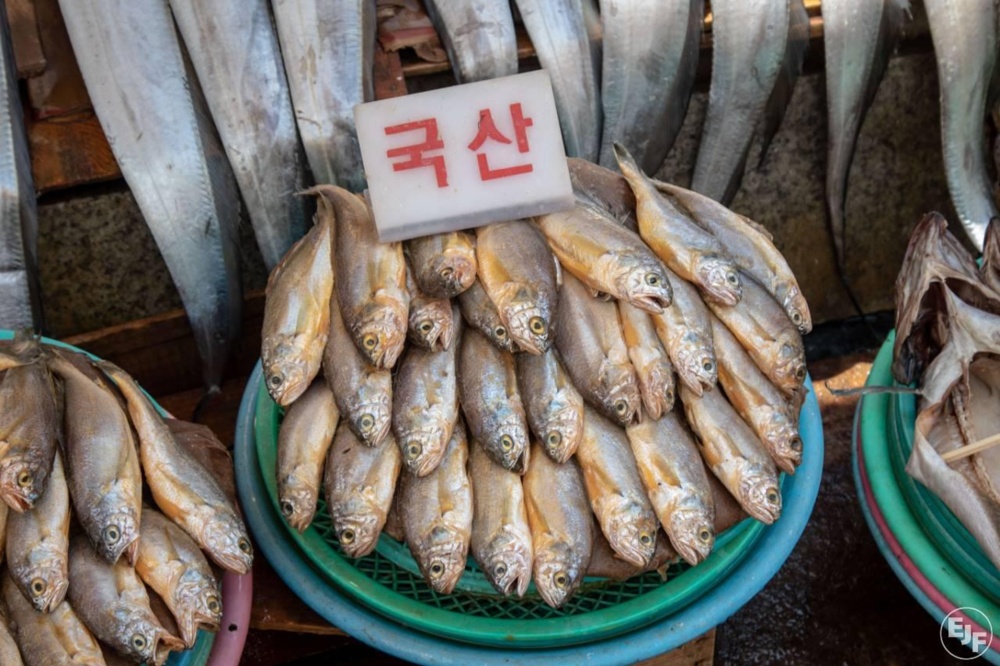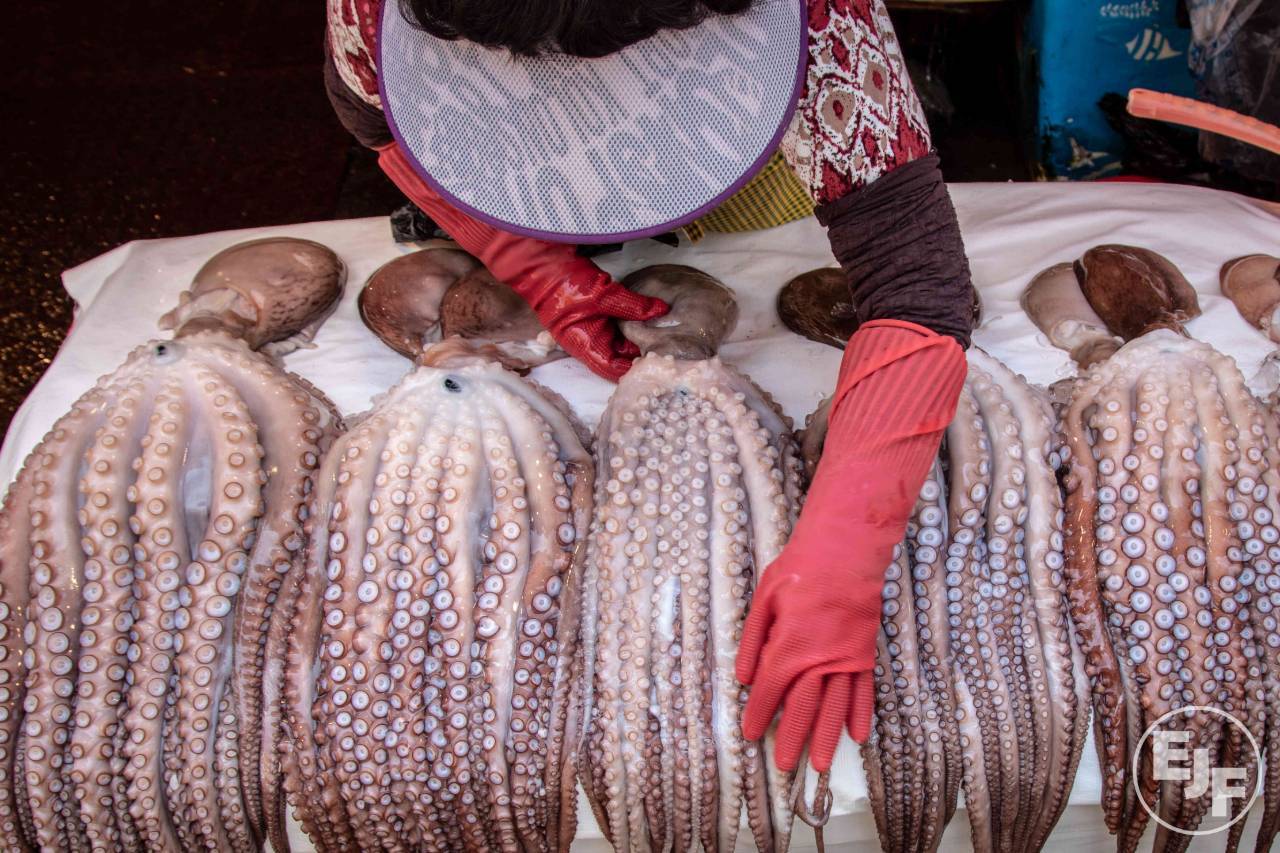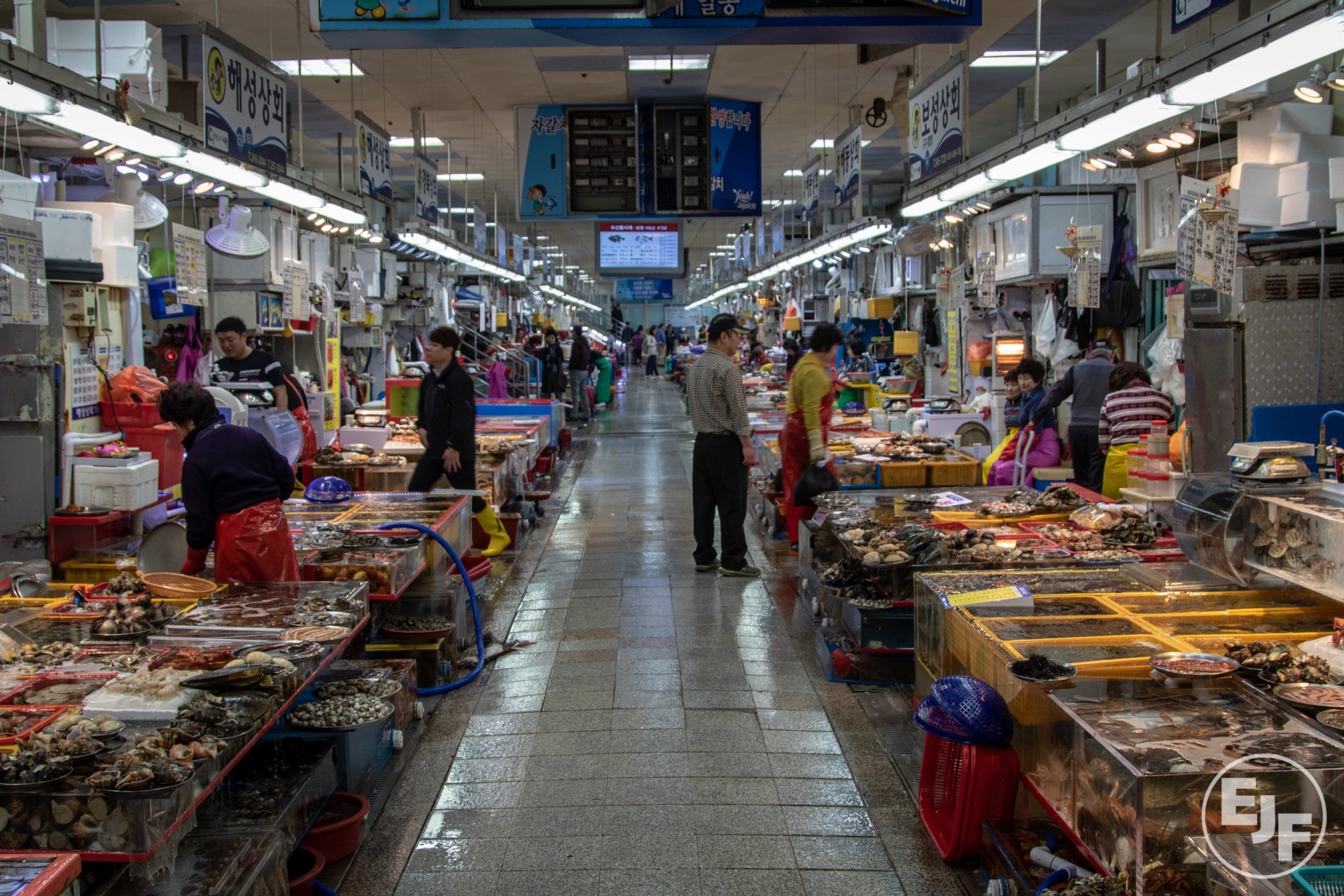
South Korea’s fisheries laws improve, but vigilance is needed
South Korea’s revision of its Distant Water Fisheries Development Act is crucial progress in tackling illegal fishing, as it allows deterrent sanctions to be applied quickly and efficiently, EJF and a group of other NGOs have said. However, the group also raised concerns about the new head of a key agency that certifies seafood legality. The official was in post when serious errors were made in a recent case where Korea failed to sanction vessels found fishing illegally, instead allowing the owner to sell the catch on the global market.
Last month, the USA placed South Korea on a preliminary list of countries engaged in illegal fishing. A key reason for the listing was illegal fishing by two Korean distant water fishing vessels in 2017 that violated conservation measures of the Commission for the Conservation of Antarctic Marine Living Resources (CCAMLR), an international body established to conserve Antarctic marine life.
The Korean government reacted quickly by addressing flaws in the Distant Water Fisheries Development Act that had made it difficult to sanction illegal vessels. The government is now able to take action quickly and effectively when they find a vessel has fished illegally.
The Environmental Justice Foundation, the Citizens’ Institute for Environmental Studies and the Korean Federation for Environmental Movement praised the amendment, which was informed by the recommendations of the NGOs.
However, they also called for the government to ensure greater transparency in fisheries governance. The publication of key information on vessels, such as license lists, would be a first step, along with full disclosure of any sanctions issued.
Strong leadership of the agency responsible for certifying the legality of seafood – the National Fishery Products Quality Management Service (NFQS) – is also needed, say the NGOs. But they have raised serious concerns about the appointment of the former Director General of Overseas Fisheries to run the NFQS, as he was the official responsible during the CCAMLR case.
Hyunjung Kim, Senior Campaigner at the Environmental Justice Foundation said: “We are strongly encouraged by recent progress in Korea, and it is clear the Minister of Oceans and Fisheries and his team are taking decisive action to update Korean legislation. However, strong leadership is needed in all areas of the Korean government responsible for combatting illegal fishing, and it is important that international seafood buyers have complete confidence in how the NFQS is run.”
SIGN UP FOR OUR EMAILS AND STAY UP TO DATE WITH EJF

